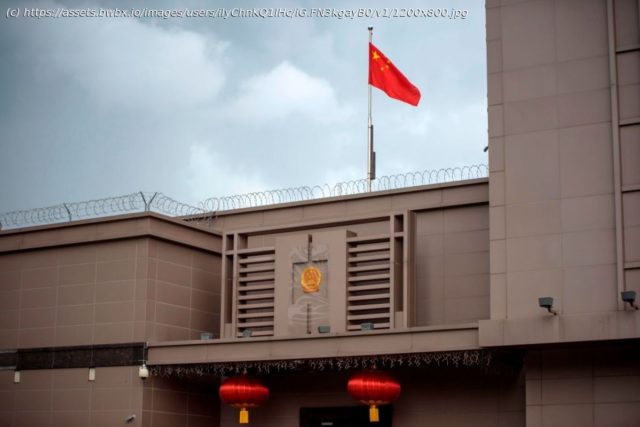Maybe you’re not taking this seriously enough.
This is Bloomberg Opinion Today, a domino theory of Bloomberg Opinion’s opinions. Sign up here.
A long time ago, in a galaxy far, far away — the fall of 2019, in other words — people worried about China for reasons other than viruses. How bad would the trade war get? Would it cause a recession? Stuff like that. Bigger, scarier threats have emerged since then. And yet those other China worries haven’t gone away. In fact, they’ve gotten much worse.
Americans woke this morning to the very weird news of the Trump administration shutting down China’s consulate in Houston, of all places, where somebody had been making suspicious bonfires the night before. China vowed retaliation. Stocks flexed their old trade-war freakout muscles briefly before resuming their relentless climb. John Authers fears investors aren’t quite grasping how much damage could be done to the global economy and corporate profits by a Cold War that shows no sign of cooling.
But such misalignments of reality and market psychology are what dreams, at least arbitrage opportunities, are made of. One place to look is in defense stocks, which Brooke Sutherland observes are strangely super-cheap, despite business holding up just fine for them during the pandemic. Traders may fear a President Joe Biden will cut defense spending. But if anything he’s tried to out-hawk President Donald Trump on China. Coronavirus will almost certainly be reasonably contained in a year or two, at worst. The Cold War may not.
Further Cold War implications reading: A U. S. ban of TikTok would leave a huge social-media void here. — Tae Kim
The market’s attention this week has mainly been on a string of hopeful headlines about the pandemic. Even as coronavirus runs amok in much of the U. S., progress is being made on a vaccine. The Trump administration today cut a deal to pay Pfizer and its vaccine-development partner $1.95 billion for 100 million doses if they strike immunological gold. Max Nisen writes this is one of the savviest things the government has done so far in this whole debacle.






